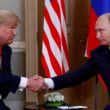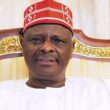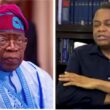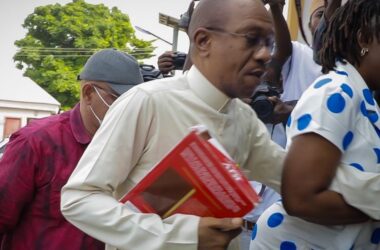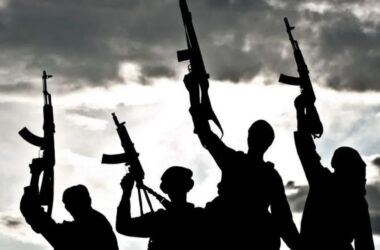The recent resignations of Yusuf Bichi, the former Director-General of the Department of State Services (DSS), and Ahmed Abubakar, the former head of the National Intelligence Agency (NIA), have been linked to failures in intelligence gathering during the #EndBadGovernance protests and other security lapses.
Sources from the Presidency disclosed to PUNCH that President Bola Tinubu and National Security Adviser Nuhu Ribadu were dissatisfied with the performance of the DSS and NIA during the violent protests in northern Nigeria and the seizure of three presidential aircraft in France.
The protests, sparked by economic hardship, turned violent in several northern states, leading to property destruction and curfews in places like Kano, Bauchi, and Plateau.
Bichi was criticized for the DSS’s inability to provide adequate intelligence on the protests, while Abubakar faced questions over the NIA’s failure to anticipate the seizure of the presidential jets by a Chinese company, Zhongshan Fucheng Industrial Investment Co. Limited. This incident, which involved a French court’s order to seize three Nigerian presidential aircraft, embarrassed the Nigerian government both locally and internationally.
According to sources, Bichi and Ribadu had longstanding conflicts, which worsened due to the fallout from the protests. Bichi’s resignation was announced through a statement by the President’s Special Adviser on Media and Publicity, Ajuri Ngelale, on August 26, while Abubakar resigned two days earlier after a meeting with President Tinubu.
Within the DSS, Bichi’s departure was met with mixed reactions. Some DSS officers celebrated his resignation, criticizing his leadership style and accusing him of nepotism, favoritism, and mismanagement.
They alleged that Bichi extended the service years of some officers due for retirement, limiting the career advancement of others. Furthermore, his family members, particularly his wife and son, were accused of undue interference in DSS operations, including recruitment and promotions.
Despite these criticisms, some argue that the celebrations following Bichi’s resignation might not necessarily reflect his leadership quality, as workers often react strongly against strict or unorthodox leadership styles. Nonetheless, his tenure was marked by several controversial incidents, including allegations of illegal arrests and violations of court orders, which further marred his legacy as the head of Nigeria’s security apparatus.
Bichi and Abubakar were both appointed during the administration of former President Muhammadu Buhari, with Bichi taking office in 2018 and Abubakar in early 2018.


